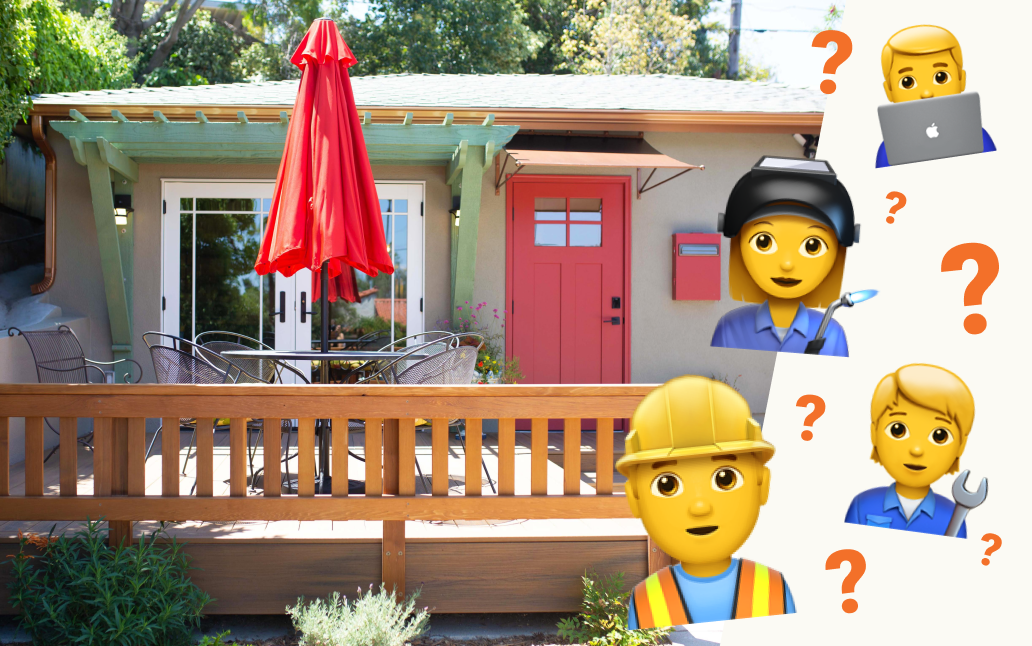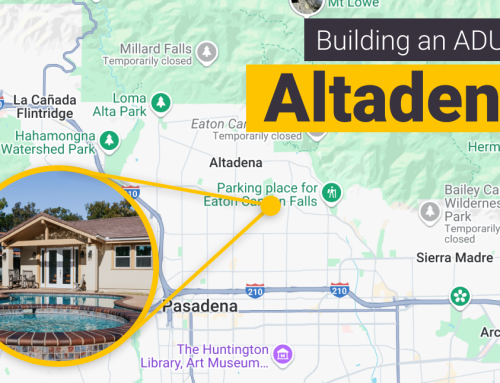Thinking about building an ADU but not sure who you need to hire? Accessory Dwelling Units (ADUs) involve multiple professionals, from designers to contractors, and knowing who to bring on board—and when—can make or break your project. Hiring the right team ensures your ADU meets local regulations, stays on budget, and gets built efficiently.
At bare minimum, you’ll need: (1) a lender, (2) a designer or architect, and (3) a general contractor, but depending on your project, there may be some other helping hands you’ll want to consider to get you over some speed bumps or just make the process smoother.
We’ll break down exactly who you need to hire, what they do, and when to bring them in.
Pssst… You can also take a shortcut. Schedule a call with one of our ADU experts to tell us a bit about your project. Once we get some details, we’ll match you to an ADU dream team that’s local to you. All vetted. All ready to take on your project. Click here to schedule your free call.

Lender
Responsibilities: Financing your ADU
Unless you’re paying cash for your project, a lender is a must to fund your project. Depending on your location, your ADU will start at about $130,000. There are multiple loan options to finance your ADU, each with its own benefits and requirements. Some of the most common options include:
- Home Equity Line of Credit (HELOC) – Allows you to borrow against your home’s equity with flexible, revolving credit.
- Cash-Out Refinance – Replaces your existing mortgage with a larger loan, giving you cash for your ADU.
- Renovation or Construction Loans – Specifically designed for home improvements, these loans provide funds based on the future value of your property.
- ADU-Specific Loans – Some lenders offer financing tailored for ADU projects, with terms designed to fit the unique costs of construction.
Choosing the right loan depends on your financial situation, home equity, and long-term goals. Working with an experienced lender can help you secure the best option for your project.
When to Hire: It’s best to talk to a lender before you begin any part of the ADU. You can get pre-approved for a loan to make sure you qualify before diving into design and permitting. Knowing your budget upfront helps you make informed decisions about size, features, and materials without overextending financially.
Designer or Architect
Responsibilities: Logistics, design, permitting
Next is the designer or architect. A lot of people assume that a designer just drafts up a floor plan and maybe some renderings, but their work goes much deeper.
They play a crucial role in ensuring your ADU is functional, code-compliant, and tailored to your needs. A designer or architect will assess your property’s layout, zoning regulations, and utility connections to create a plan that maximizes space while meeting local requirements. Beyond aesthetics, they handle essential logistics like structural planning, accessibility, and integrating energy-efficient solutions.
All of this gets wrapped into a hefty ADU permit set that your general contractor will need to build your ADU. But, before any construction can begin, your designer or architect will also go through the application process to get your permits. Trust us. This is a big task best left to a professional that knows the regulations to a tee and how to navigate your local planning department. Within a few weeks or months (depending on your jurisdiction) you’ll receive your building permits to construction
When to Hire: Aside from getting pre-approved for a loan, hiring your designer or architect is the first step to any ADU project. 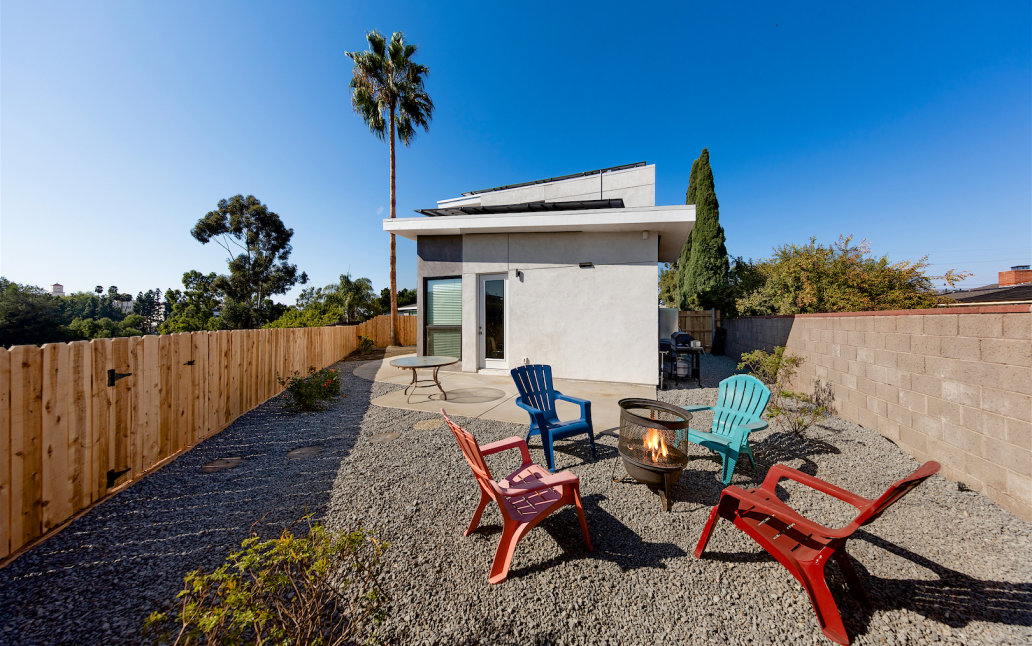
General Contractor
Responsibilities: Project management, subcontractor management, ordering materials
Your general contractor is the person who brings your ADU from paper to reality. They oversee every aspect of construction, managing the timeline, hiring and coordinating subcontractors (like electricians, plumbers, and framers), and ensuring that all work meets building codes and quality standards.
A good general contractor will also handle ordering materials, scheduling inspections, and troubleshooting unexpected issues that arise during construction. Since they play such a key role in the success of your project, it’s crucial to hire someone with ADU experience, strong communication skills, and a proven track record of completing projects on time and within budget.
When to Hire: We recommend clients begin reaching out to general contractors right when their permits sets are submitted to the city. Hiring a general contractor can be a lengthy process especially with good general contractors in short supply.
By beginning the vetting process while your plans work their way through the permitting process, you can avoid unnecessary delays and have a contractor ready to start as soon as your permits are approved. This timeline gives you enough time to collect bids, compare pricing, and check references without feeling rushed.
Structural Engineer (Optional)
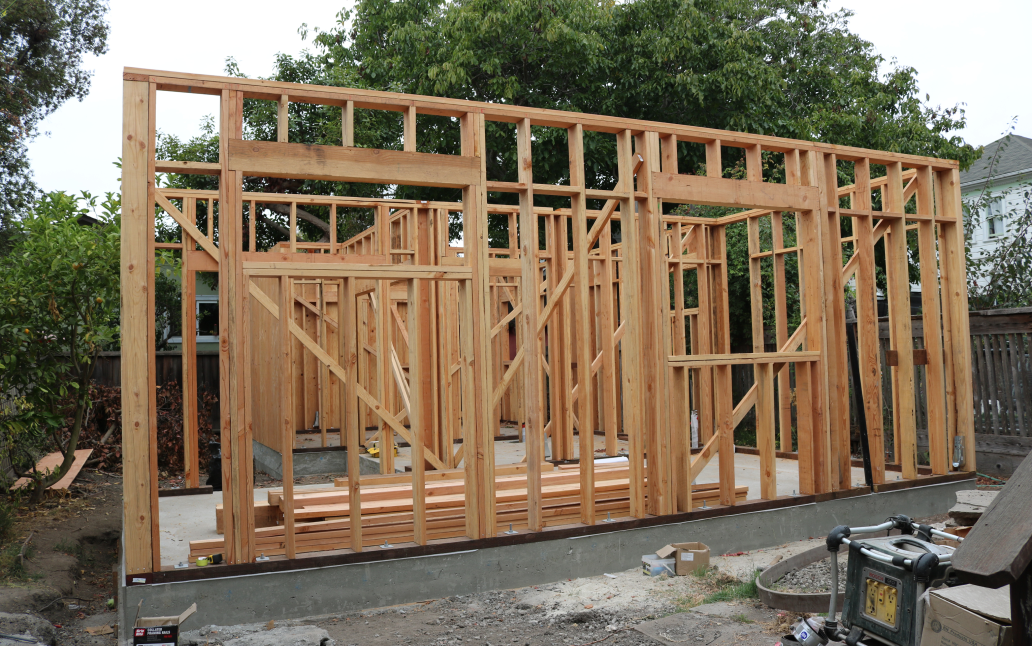
Responsibilities: Ensuring structural integrity, foundation design, load calculations
Ensuring structural integrity, foundation design, load calculations
A structural engineer may not always be required, but they can be crucial depending on your ADU’s design and location. Their primary role is to ensure your structure is safe, stable, and capable of withstanding environmental factors like earthquakes, soil movement, or heavy loads.
If your ADU is a garage conversion, second-story addition, or built on a hillside, a structural engineer is often necessary to design reinforcements for the foundation, walls, and roof. They analyze load-bearing elements, create structural calculations, and provide stamped plans required for permitting. If you’re hiring a design or architecture firm to design your ADU, they’ll likely already have a Structural Engineer on staff to complete this step for you.
Surveyor (Optional)
Responsibilities: Property boundary verification, site planning, setback compliance
You may need a surveyor to confirm your property’s exact boundaries and ensure your ADU complies with local setback requirements. This is especially important if your lot has unclear property lines, irregular dimensions, or potential encroachments from neighboring properties.
If your ADU is being built close to property lines, near easements, or on a hillside, a survey may be required by your city or county before issuing permits. A surveyor will provide an official site map that helps prevent legal disputes and ensures your ADU is positioned correctly.
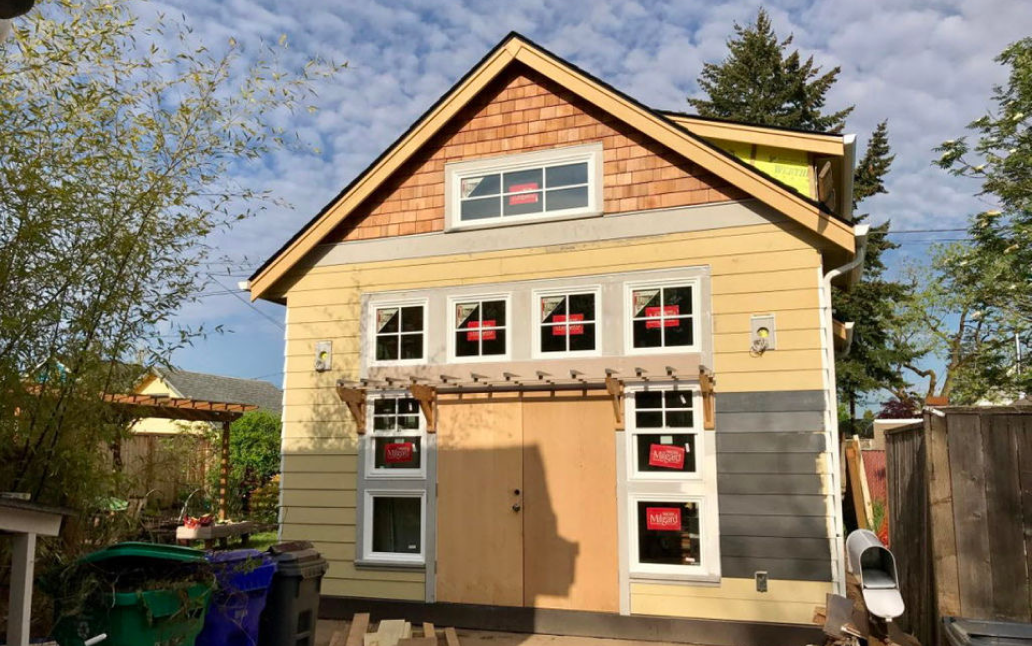
Appraiser (Optional)
Responsibilities: Determining property value, assessing ADU impact on home equity
An appraiser evaluates your property’s current and future value, helping you understand how an ADU will impact your home’s worth. If you’re financing your ADU with a cash-out refinance, HELOC, or construction loan, a lender may require an appraisal to determine how much you can borrow.
Beyond lending requirements, an appraiser can provide insight into your ADU’s potential return on investment (ROI) by comparing similar properties with ADUs in your area. This can be useful if you plan to rent out the unit or eventually sell your home.
While not always necessary, an appraisal can be a smart step for homeowners looking to maximize their property’s value and secure the best financing terms.
Where Do You Find ADU Professionals?
A quick Google search will bring up hundreds of designers, general contractors, lenders, and more, but how do you know each one is actually qualified to do the job right? Unless you’re prepared to comb through every listing, check reviews, verify licenses, and interview multiple candidates, finding the right team can be overwhelming. That’s where Maxable comes in.
We take the guesswork out of hiring by connecting you with vetted, experienced ADU professionals—from designers to contractors to lenders—who specialize in ADUs and have a proven track record of success.
Are you a “case study” kind of person? Check out some real ADU stories from homeowners that took the Maxable route and now are proud owners of beautiful ADUs on their properties.
Skip the hassle and get matched with the right experts for your project today.

